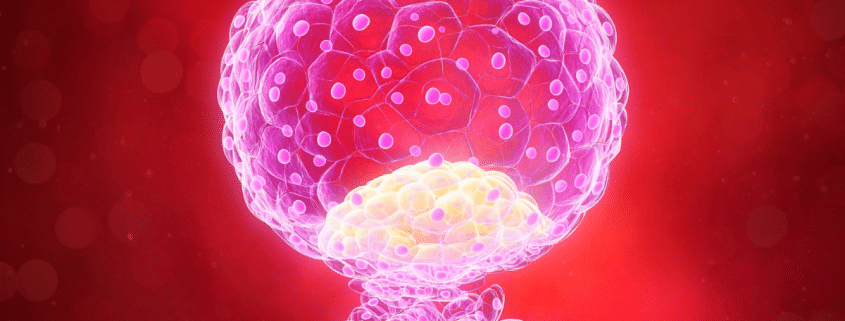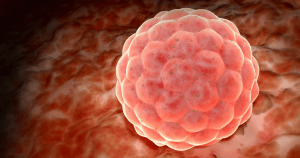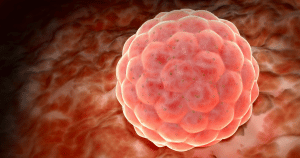When Does Implantation Occur?
Implantation- the match that lights the fire of pregnancy. We know it is important, but when does implantation occur, exactly?
If you have found yourself wondering about the answer to that question, you are in luck, as that is what this article is all about.
In this article:
- What Is Implantation and Why Is It Important?
- When Does Implantation Happen?
- How Many Days Does Implantation Take?
- How Long After Implantation Can I Take a Pregnancy Test?
- Signs and Symptoms that Implantation has Occurred
- Implantation Calculator
What Is Implantation and Why Is It Important?
Implantation is the process where a fertilized egg attaches itself to the uterine lining. The egg, which is fertilized within a fallopian tube, travels down into the uterus and implants into the uterine lining. When the fertilized egg (or blastocyst) attaches to the uterine lining, it is given a blood supply so that it can begin growing into a fetus.
After implantation occurs, the hormone, Human Chorionic Gonadotropin- or hCG- which is one of the first ever signals provided by the embryo to the mother- begins to be secreted.
It is the hCG hormone that is responsible for giving you a positive pregnancy test. Have you read our article, How to Help Implantation? It contains tips on how to maximise your chances of implantation successfully occuring.
When Does Implantation Happen?
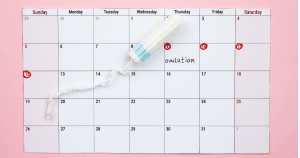
S, when does implantation occur? Implantation most commonly occurs around 8 to 9 days after conception. However, the date in which implantation occurs depends on when ovulation occurred within your menstrual cycle, and whether conception occurred earlier or later within the ovulation (fertile) window.
How Many Days After Ovulation Does Implantation Occur?
Implantation happens between 6 and 12 days after ovulation or between 6 DPO and 12 DPO. It most commonly happens at 8 DPO, 9 DPO or 10 DPO.
How Many Days Does Implantation Take?
The implantation process can take several days overall- including the amount of time it takes for the fertilised egg to travel down into the uterus- and it usually occurs between 6 and 12 DPO.
How Long After Implantation Can I Take a Pregnancy Test?
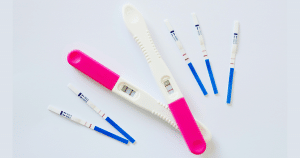
After implantation occurs, your hCG levels begin to rise. At between 7 and 12 days after implantation, the hCG levels in your urine become high enough for a pregnancy test to detect them, so if you would like to take a home urine pregnancy test, you should wait until at least 7 days after your expected implantation date.
If you are taking a blood pregnancy test, the hCG levels will be detectable in the blood by around 5 days after implantation occurred.
Signs and Symptoms That Implantation has Occurred
We know that the two-week wait can feel as though it lasts forever, and you may find yourself symptom-spotting to find out whether you are pregnant. The below implantation symptoms will help to give you a clue as to whether or not implantation has occurred and if you are pregnant. Please note that not all women experience these symptoms of implantation, in fact, many women experience no symptoms at all! It is still advised to take a home pregnancy test to accurately determine whether or not you might be pregnant!
Implantation Bleeding
Implantation bleeding is light bleeding or spotting that occurs due to the implantation process. It is specifically caused by the motion of the fertilized egg implanting itself into the uterine wall. This motion can cause the tiny blood vessels in your uterine lining to bleed.
Implantation bleeding usually happens around the time in which you expect your menstrual period to happen, sometimes, implantation bleeding can be mistaken for a period.
If you find you are experiencing bleeding in the middle of your cycle, it may be ovulation bleeding & soptting.
There are several other reasons why you could be spotting after your period ended.
Implantation Cramps

Sometimes, implantation can cause “implantation cramps”. Implantation cramping is usually mild, and often feels like a dull ache or light twinges. Implantation cramps usually last for one to two days.
Implantation Dip
An implantation dip is a dip in basal body temperature that occurs due to implantation. If you have already been tracking your basal body temperature as a method of detecting when you will ovulate, then this is a good method for you!
Missed Period
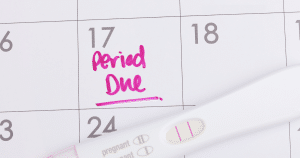
A missed period is one of the first implantation or early pregnancy symptoms that women notice. If you have missed your menstrual period, then you may be pregnant. Pregnancy tests are the best method of accurately testing for pregnancy at home.
Bloating
After implantation occurs, your hormones, namely progesterone, begin to increase. This increase in progesterone slows down your digestive system, which can cause bloating, build-up of gas, mild abdominal pain and even constipation.
Tender Breasts

Hormonal changes during very early pregnancy are responsible for sore breasts. This symptom usually subsides after the first trimester.
Cervical Mucus
If you have already been tracking your cervical mucus, that is great! Your cervical mucus can tell you a lot about your reproductive health, and which stage of the menstrual cycle you are in. Your cervical mucus can also indicate whether implantation has occurred. Shortly after implantation, your cervical mucus may be streaked with small amounts of blood (implantation bleeding). After the implantation bleeding subsides, the cervical mucus/vaginal discharge becomes white and creamier (as opposed to the egg white discharge you experience shortly before implantation occurs). This white and creamy vaginal discharge is called leukorrhea.
Fatigue
At the beginning of pregnancy, your hormones are all over the place. With these sudden changes in hormones, fatigue is likely to happen! It is no wonder that this is a common symptom.
Mood Swings
Mood swings are a common sign of successful implantation and early pregnancy. Your fertility hormones, estrogen, progesterone and hCG, all increase quickly shortly after implantation. These changes in hormones can cause mood swings.
Implantation Calculator
An implantation calculator can be used to help you to figure out when the fertilized egg or embryo implants into the lining of the uterus. All you need to enter is the day you ovulated, or the date of the first day of your last menstrual cycle and your average cycle length.
Babymed provide a great implantation calculator which you can use.
Now that you have finished this article, why not check out our other article Does Plan B work during ovulation?
My name is Louise and I am the Digital Marketing and Administrative Assistant at MyBump2Baby. I have been writing in the parenting niche for over 2 years specialising in fertility, pregnancy, baby and baby name support articles.



